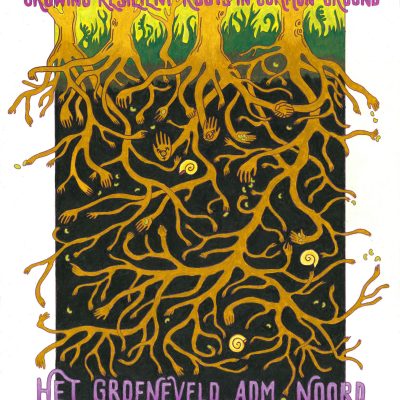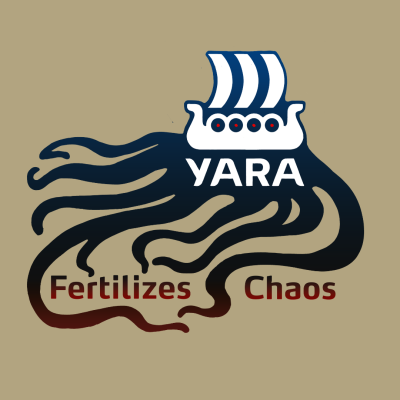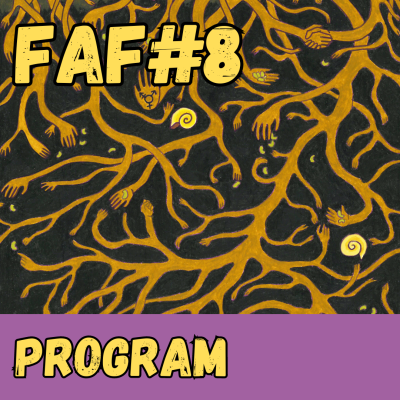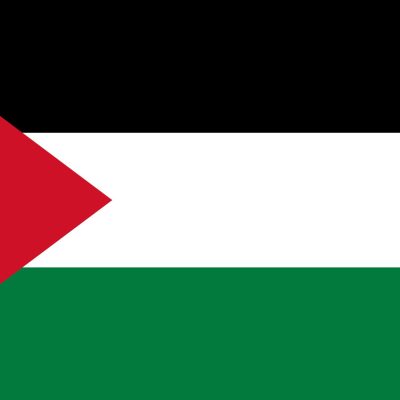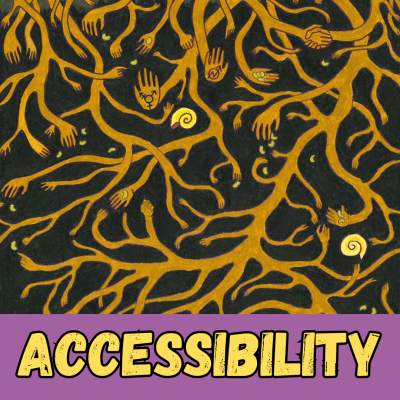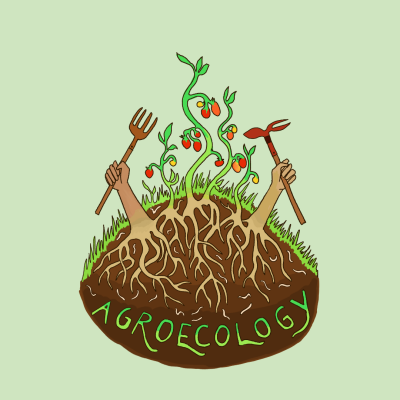An Article about the Global Food Sovereignty Movement
In June 2021, ASEED is organizing the fifth edition of the Food Autonomy Festival (FAF). The FAF is an horizontally organized festival that provides a platform for knowledge exchange, inspiration and mobilization in forms of workshops, discussions and joint action. It gives voice to a variety of actors, groups, initiatives and organizations that fight for food justice and food sovereignty. We take this opportunity to reflect upon the potential and importance of collective efforts to encounter consumers’ and producers’ struggle in the current food system and to form a movement for social justice and climate justice in the food and agricultural sector. In the past decades, it is first and foremost the food sovereignty movement which presents an alternative to and combined resistance against the current industrial, neoliberal food and agricultural model and its devastating impacts. Most commonly, food sovereignty is defined as the “right of peoples to healthy and culturally appropriate food produced through ecologically sound and sustainable methods, and their right to define their own food and agriculture systems“ [1]. The efforts and successes of the movement essentially rely on collectivity, community, collaboration and solidarity. Let us take some steps back in history to understand the origins and evolution of the global food sovereignty movement.
Food sovereignty: origins and evolution
“The struggle for Food Sovereignty is a collective struggle, and cannot be achieved by one single social group. Building and developing alliances at a local, regional and international level is fundamental in order to build a movement working towards shared goals.”
Food Sovereignty Now, 2018
Food sovereignty as a concept was coined to acknowledge the political and economic power dimensions in the food and agriculture debate [2]. The idea of food sovereignty evolved from the experience of and critical analysis by the people, mainly peasant farmers, most threatened by destructive economic policies of the global neoliberal, industrial model of agriculture and food in the 1980s and 90s.
In 1996, the transnational agrarian movement La Via Campesina (LVC) first discussed food sovereignty at its Second International Conference in Tlaxcala, Mexico. The same year, LVC in collaboration with other civil society organizations presented its declaration of food sovereignty, entitled “Profit for Few or Food for All”, to the World Food Summit organized by the Food and Agricultural Organisation of the UN (FAO). This successfully brought food sovereignty into the public debate, representing a sophisticated and coherent alternative to the corporate-led, industrial model of agriculture. In acknowledgment of an already-existing, mainly local, food sovereignty movement/network, it then emerged at an international scale as numerous social movements and NGOs all around the world adopted the concept of food sovereignty in their efforts to shift the current destructive food system [2]. Throughout the years it became apparent how regional, national, and global coalition building within and beyond the movement are key to influencing policy change towards food sovereignty. One important network is the International Planning Committee for Food Sovereignty (IPC) which emerged in 2000 as a coalition of 52 civil society organizations to form a collective front at the 2002 World Food Summit. Resulting from the collective efforts of food sovereignty movements from across the globe, the IPC has reached an agreement with the FAO in 2003 to be the principal civil-society interlocutor. Since then, the IPC has been instrumental in bringing the voice of civil society on board of UN conferences, discussions and decisions [1]. The IPC was also strongly involved in the establishment of the Civil Society and Indigenous Peoples’ Mechanism (CSM), a new body in the FAO to ensure the involvement of civil society and indigenous voices. However, as I will lay out beneath, all this did and does not guarantee the democratic, autonomous participation of civil society in international policy making.
Further, the declaration emphasizes the solidarity needed to build new social relations amongst consumers and producers, and to ensure community-building which overcomes inequalities between men and women, peoples, racial groups, social classes and generations. Essentially, the forum aimed at deepening the collective understanding of the struggles and realities of the respective movements to be able to build a collective vision [3]. In this vision, food is integral to local cultures, closely connects production and consumption and food sovereignty is based on local knowledge and a democratic food system [2]. During the forum, participants developed the six pillars of food sovereignty:
These six pillars have been picked up by social movements and organizations all around the world and shape action until today. The Nyéléni Forum for Food Sovereignty 2007 has been highly successful in coalition building and formulating a clear common demand to food sovereignty.
“[The Forum] also highlighted the centrality and utility of food sovereignty as a platform to build alliances and strategies to resist neoliberalism, global capitalism, authoritarianism, and all forms of injustice, inequality and violence. Participants pledged to build solidarity, unity and common cause within and across movements, constituencies, genders, cultures and regions by strengthening communication, political education, awareness and peer-to-peer learning.“
Nyéléni Newsletter, no. 42
In Europe, the Nyéléni Europe Forum 2011 in Austria served as an opening space to define and create an effective movement for food sovereignty, bringing together 400 people from 34 European countries. As was the case in Europe, the International Nyéléni Forum for Food Sovereignty 2007 sparked mobilization and solidarity all around the world and inspired regional, national and transnational movements to unite, build alliances and formulate collective visions. Engaging with the evolution of the food sovereignty movement is important to understand the need for and the tools of collective action. It might seem tiring to skim through the names and dates of events and emerging networks, yet it gets to show how valuable alliances, solidarity and interaction are. The food sovereignty movement, especially after the International Nyéléni Forum 2007, is a platform, an opportunity to gather and support each other, and holds the potential to unify very diverse groups in order to move forwards towards a just, healthy, accountable food system.
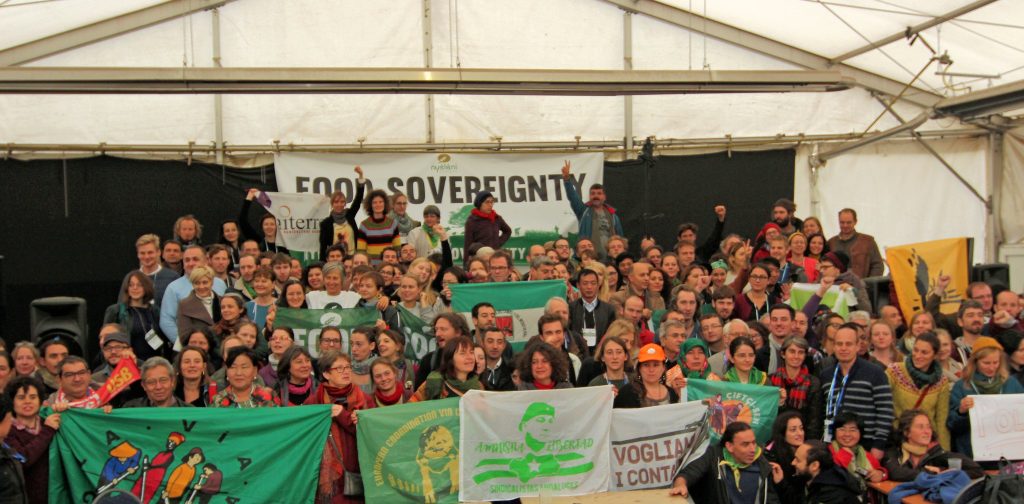
“Often Food Sovereignty means building a new reality – new systems of producing, exchanging and consuming, – together, from the ground up, while challenging the existing structures of corporate power and control.”
Food Sovereignty Now, 2018
Initially a peasant-centered movement, the global collaboration and solidarity networks increasingly voice the inclusive demand of food sovereignty as a fundamental right for all peoples.
Food sovereignty as a right for everyone
“If we talk about food sovereignty, we talk about rights, and if we do that, we must talk about ways to ensure that those rights are met, across a range of geographies, by everyone, in substantive and meaningful ways.“
Raj Patel, 2009
Arguably, food sovereignty as a discourse, concept and alternative model is very much rights based. It demands the right of the people to constitute their food systems, to shape their food policies and to exercise food autonomy. This demand calls for a certain moral universalism, a radical egalitarianism which requires the eradication of sexism, patriarchy, racism, class power and any other mechanism of inequality and injustice. It is no surprise then that both food sovereignty advocates and La Via Campesina specifically are strongly involved in women’s rights and gender (in)equality. For decades now, LVC has been an important voice and pioneer in the feminist movement and in effectively tackling patriarchy and sexism in its internal policies. Quite accurately, author and academic Raj Patel states:
“To make the right to shape food policy meaningful is to require that everyone be able substantively to engage with those policies.“
Raj Patel, 2009
Therefore, the right to food sovereignty is at direct opposition to privilege [4]. A prerequisite for food sovereignty is a radical egalitarian approach not only on food but on society as a whole:
“Food sovereignty is only possible if it takes place at the same time as political sovereignty of peoples.“
Nyéléni 2007
In order to enter democratic conversations about food policy and alternatives to the neoliberal model we must acknowledge and overcome inequalities. At the same time, the food sovereignty movement advocates an approach of pluriversality – meaning a world in which many worlds fit and where cultural dialogue is a priority [5]. LVC made this a basic condition of its philosophy and strategy. Just this year, LVC published a new video campaign called “A Movement in Formation” to promote cultural exchange, knowledge exchange and collaboration across different groups and cultures as basic tools of resistance and claiming the right to food sovereignty [6]. Similarly, the international as well as continental Nyéléni forums made this approach the base of their assemblies and strategies (as visible in their reports, organization and event structure). This pluriversality emphasizes that food sovereignty is a right for everyone, regardless of cultural, geographical, social, ethnical background, or any other diversifying factor such as gender, age, etc.
Today, La Via Campesina comprises 182 organizations and represents about 200 million peasants and farmers. Nyéléni Europe held its second assembly in 2016 and is further solidifying its action plans. Countless organizations across the globe demand food sovereignty as a right for everyone and continually exchange experience and knowledge and formulate strategies to achieve a common vision and collective action. To date, food sovereignty has been recognized in national laws and constitutions of several countries around the world. Bolivia, Ecuador, Nepal, Venezuela, Nicaragua, the Dominican Republic, Senegal and Mali are some examples. These achievements on a constitutional level are credited to the persistent work and mobilization of a network of organizations and actors part of the food sovereignty movement. Sadly, this does not mean that people, especially peasants, in these countries are relieved from struggle. For instance, Ecuador’s troubled fight for peasant rights and food sovereignty was and is marked by changing political winds and unreliable political decisions.
Further, although presence of the International Planning Committee for Food Sovereignty (IPC) at the FAO’s World Food Systems Summits sounds promising, there has and continues to be much criticism and disappointment about how effective this presence really is. Just this year, the global food sovereignty movement is yet again confronted with the strategic exclusion of civil society bodies and a concentration of decision-making powers by corporate influences.
The global NGO Slow Food aptly summarizes civil society organizations’ main concerns about the World Food Systems Summit 2021:
- The Summit is not building on the legacy of past World Food Summits, which resulted in the creation of innovative, inclusive and participatory governance mechanisms with the goal of realizing the right to adequate food for all;
- The Summit was convened by a unilateral decision of the UN Secretary General shortly after he signed a partnership agreement with the World Economic Forum, while the previous Food Summits were convened through an intergovernmental decision.
- The appointment of Agnes Kalibata, the current President of the Alliance for a Green Revolution in Africa (AGRA) as Special Envoy and the role assigned to the private sector confirm the undue influence of the corporate sector on the Summit;
- Multistakeholderism is the form of governance sponsored by the Summit: instead of recognizing Governments as duty bearers and people as right holders, the Summit promotes a new governance with a prominent role for the corporate sector, without taking into account the power imbalance, conflicts of interest, and the lack of accountability of these actors. [7]
The IPC and many other civil society representatives and organizations have taken steps to make these developments visible, pressure the UN and FAO to act, and to make their way to the participation table of the World Food Systems Summit. Nonetheless, even after global outrage and mobilization, the UN organizing structures have not given any satisfying response and instead continued to privilege alliances with the corporate sector. Again, it will be in the hands of a global movement of resistance towards food sovereignty and food justice to mobilize and form strong alliances to make the voice of civil society be heard in a global policy making process.
“Talking about food systems is not enough. How we talk about them and with whom is what matters most.”
O. De Schutter and O. Yambi, 2020
So what?
By reflecting on the evolution and implications of the food sovereignty movement and its demand for the right to food sovereignty for everyone, we make ourselves aware of some very important aspects. The struggle of each and every one, and the struggle of marginalized groups especially, is worth to be shared in order to find allies and move forward together. In collaborating and showing solidarity, tactics and demands can be formed which are useful in bringing our right to food sovereignty further on the agenda of institutions and governments. On a general stance, we, who want to decide over our food, food systems, and modes of production and want power in the hands of the people and the land and not in the hands of corporations, find success and support in solidarity networks, in the exchange of knowledge and culture, and in the formulation of a common vision. These realizations are especially valuable in the face of a continuous ignorance of institutions and policy-forming structures such as the World Food Systems Summit 2021 when mobilization and collective action is needed. To create visibility and strive towards solutions in dialogue is essential.
Having this in mind, ASEED proudly announces and invites to the 5th Food Autonomy Festival. ASEED deliberately chose to use the term “autonomy” over “sovereignty” for the title of the festival, as in many other texts/projects by ASEED. This is not to condemn the term “sovereignty” but rather because, in the English language, “autonomy” more closely describes what we aim to say. With “autonomy” we refer to people’s sole independence and determination over their food systems and food practices.
Oxford dictionary definitions: sovereignty – supreme power or authority | autonomy – the right or condition of self-government
The FAF is an opportunity to gather together, celebrate and promote resistance to the agroindustry. While providing a space for everyone to connect projects, the FAF aims at creating community, sharing knowledge, experience and visions, giving visibility to farmers and everyone who struggles, and realizing solidarity. With this initiative, ASEED supports network building beyond the event. Horizontal event organization makes sure to decentralize knowledge and offer a participatory, bottom-up approach to solution finding. The festival essentially brings very diverse people and groups together, to learn from each other, make things visible and in turn create action, impact and motivation. To quote one of our organizers, the FAF is an “avenue for feeling like you can actually do something”.
In the past years, we saw people join ASEED, community-supported agriculture projects and major resistance projects in Amsterdam and beyond after having joined the FAF. This year, we want to continue the creation of alliances, inspiration and visibility for the first time throughout three cities in the Netherlands:
Amsterdam: 4th June – 6th June 2021
Utrecht: 11th June – 12th June 2021
Wageningen: 13th June – 14th June 2021
This is to broaden the audiences and enhance exchange across cities/regions. A range of participants such as local farmers and activists will facilitate workshops and talks around the three themes of 1. decolonizing food systems 2. regenerative agriculture through practices and 3. roots and fruits of resistance (find more information here).
Learn more about…
…the Food Sovereignty concept in our ASEED zine
…the declaration of Nyeleni 2007
…a guide to food sovereignty by Via Campesina Europe
…inspiring movement formation video of La Via Campesina
…the constitutional acknowledgment of food sovereignty in West Africa (report)
…criticism on the FAO world food systems summits (article)
Reference
[1] European Coordination Via Campesina. Food Sovereignty Now! A guide to Food Sovereignty. 2018.
[2] H. Wittman, A. A. Desmarais, N. Wiebe (editors). Food Sovereignty: Reconnecting Food, Nature and Community. 2010.
[3] The Steering Committee of Nyeleni 2007. Nyéléni 2007 – Forum for Food Sovereignty. Report. 2007.
[4] R. Patel. “Food Sovereignty.” The Journal of Peasant Studies, no. 36, 2009, pp. 663-706.
[5] R. Dunford. “Converging on Food Sovereignty: Transnational Peasant Activism, Pluriversality, and Counter-hegemony.” Gobalizations, no. 17, 2020, pp. 782-796. [6] La Via Campesina. “A Movement in Formation.” Vimeo, 2021. . [7] Slow Food. “UN Food Systems Summit: We Cannot Jump onto a Train that Is Heading in the Wrong Direction.” 21 April 2021.Quotes
European Coordination Via Campesina. Food Sovereignty Now! A guide to Food Sovereignty. 2018.
The Steering Committee of Nyeleni 2007. Nyéléni 2007 – Forum for Food Sovereignty. Report.
“Ten Years of Nyéléni – Much to Celebrate.” Nyéléni Newsletter, no. 42, 2020.
Raj Patel. “Food Sovereignty.” The Journal of Peasant Studies, no. 36, 2009, pp. 663-706.
M. Canfield, M. D. Anderson, P. McMicheal. “UN Food Systems Summit 2021: Dismantling Democracy and Resetting Corporate Control of Food Systems.” Frontiers, 13 April 2021.
O. De Schutter and O. Yambi . “Op-Ed: The 2021 Food Systems Summit Has Started on the Wrong Foot – But it Could Still Be Transformational.” foodtank, 2020.

